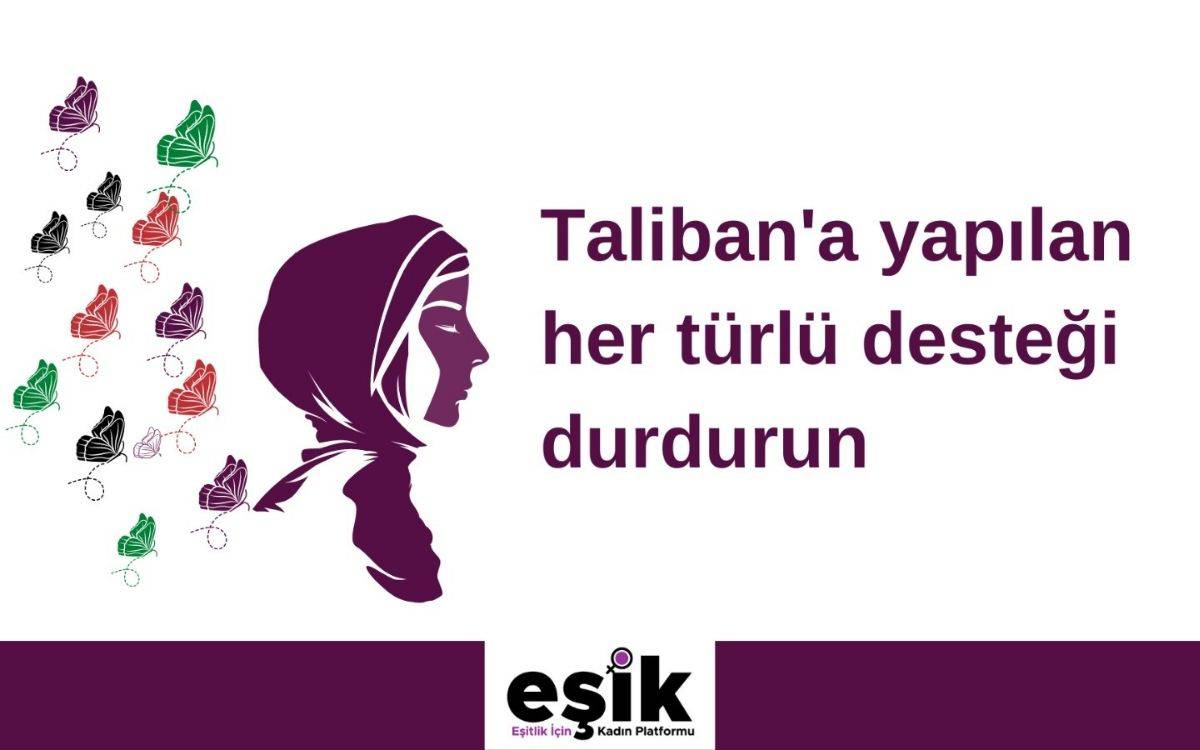The Women’s Platform for Equality (EŞİK) has released a letter regarding the Afghanistan report prepared by Special Rapporteur Feridun Sinirlioğlu for submission to the UN Security Council.
In the letter, women from EŞİK addressed UN officials, drawing attention to the report's alleged disregard for "the gender-based apartheid regime of the Taliban."
The letter expressed the following:
We have been actively following the worsening situation in Afghanistan since August 2021. We organized several international meetings and social media campaigns in solidarity with Afghan girls and women whose most fundamental human rights have been violated since the Taliban came to power. On August 15, 2023 we sent a letter to Mr. Sinirlioğlu. As we stated in our letter:
"Both in our letter and in our oral statements during the virtual consultation meeting Mr. Sinirlioğlu and his team held with Afghan civil society, we requested that the Special Coordinator pay particular attention to the global women's movement’s ongoing campaign for the recognition of gender apartheid as a crime in international law.
"Reminding him of the international struggle against the racial apartheid practiced in the Republic of South Africa, where the concept of apartheid is historically grounded, we urged the Special Coordinator and the UN Member States to ban all aid that would directly or indirectly contribute to the maintenance of the Taliban regime. There were several other Afghans at that meeting who used the term gender apartheid to refer to Taliban rule in Afghanistan.
"Contrary to our expectations, Mr. Sinirlioğlu’s report, which is yet to be made public, makes no mention of the campaign to end gender apartheid. Nor does it refer to the concept itself – despite specific requests that this be included in the report.
"Mr. Sinirlioğlu’s report states that “The restrictive bans on girls’ secondary and higher education, and on women’s right to work, among other restrictions, are not consistent with the fundamental values embodied in the UN Charter or under international law, nor are they conducive to Afghanistan’s political and economic stability.” However, it fails to acknowledge the systematic nature of the gender apartheid regime that is the backbone of Taliban’s governance. Furthermore, referring to the Taliban as “de facto authorities” (DFA) throughout, the report obscures the fact that it is the Taliban that is responsible for gender apartheid and many other egregious violations of human rights. (...)
"We fear that the report’s recommendations and proposed “engagement architecture” embolden the Taliban as it seeks recognition, legitimacy, and resources. Any engagement by the international community, and the UN Security Council in particular, must be done in a way that ensures women’s and girls’ fundamental human rights fully and without reservation.
"We live in a tumultuous time marked by various kinds of reactionary movements and governments, rising militarism, multiple wars, and interlocking crises whose heaviest burdens are born by impoverished women in the Global South, including Afghan women. We need to be resolute that women’s rights will not take a back seat in discussions of “international security.” No religion, no culture, and no political ideology should be allowed to justify women’s subjugation to men, or gender-based discrimination or violence against anyone.
"We call on the UN Security Council to issue a strong call for an immediate end to the Taliban's gender-based apartheid policies, and call on UN member states to adopt resolutions banning direct or indirect aid to the Taliban unless and until the latter takes clear and lasting steps to ensure basic human rights and the building of a democratic regime for all, including women."
(EMK/PE)





